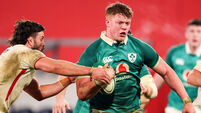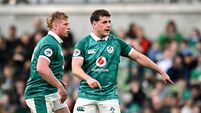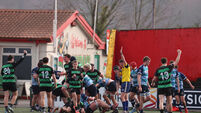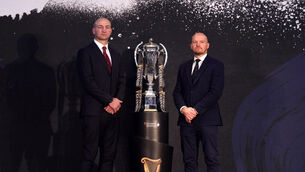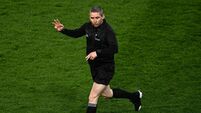A tonic for the troops
Before Gloucester took on Munster in Thomond Park last January they were welcomed by Branch president, Dr Len Harty, quoting the Roman historian Sallust ("Faber est suae quisque fortunae", for the record).
Formerly the team doctor, Harty had to give up looking after the players when he reached the administrative pinnacle, but as medic he spanned the amateur and professional eras. He's seen the frequent use of "house full" signs outside Thomond and Musgrave Parks taking over from the couple of hundred hardy souls at the interprovincials. The latter attendances were the norm when Harty began tending to the team's medical needs, but his debut was pretty classy. His first game as Munster team doctor was the win over the touring Australians, World Cup champions, in 1992, angry Bob Dwyer, Garrick Morgan and all .







